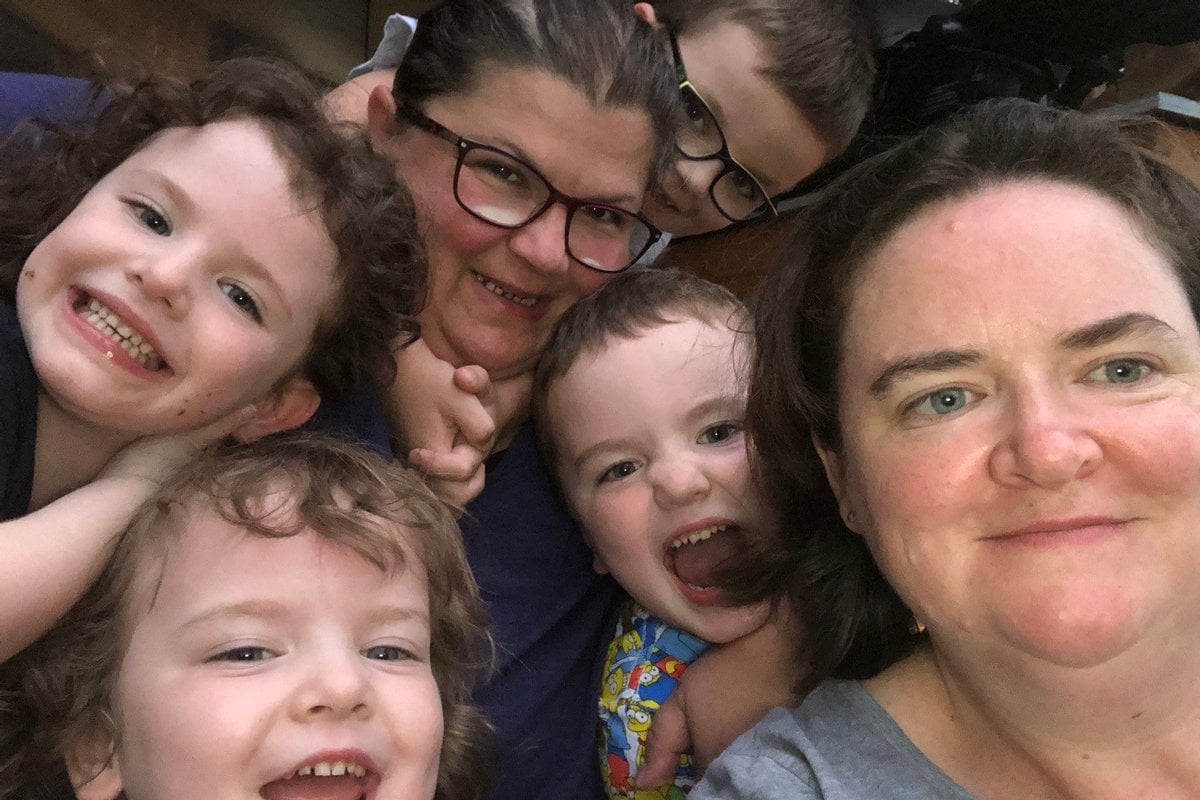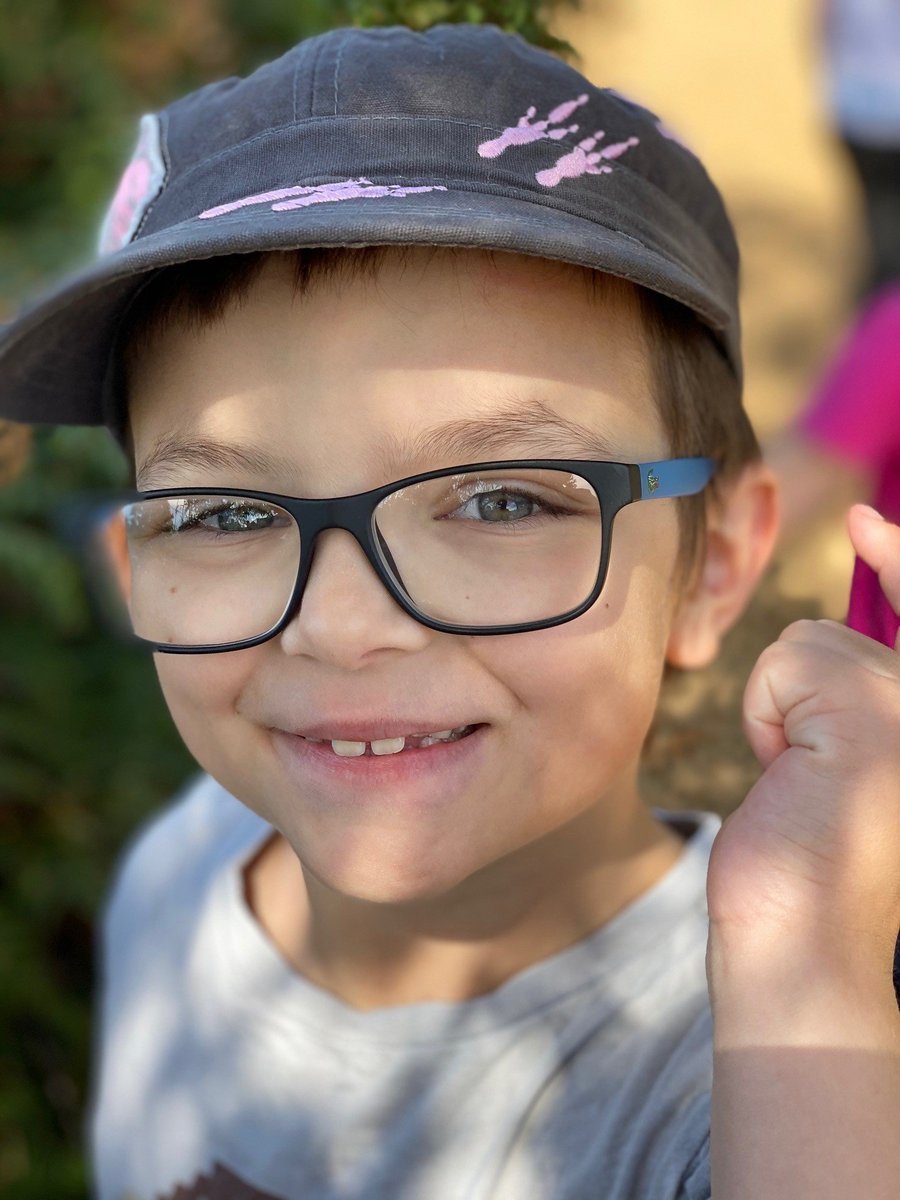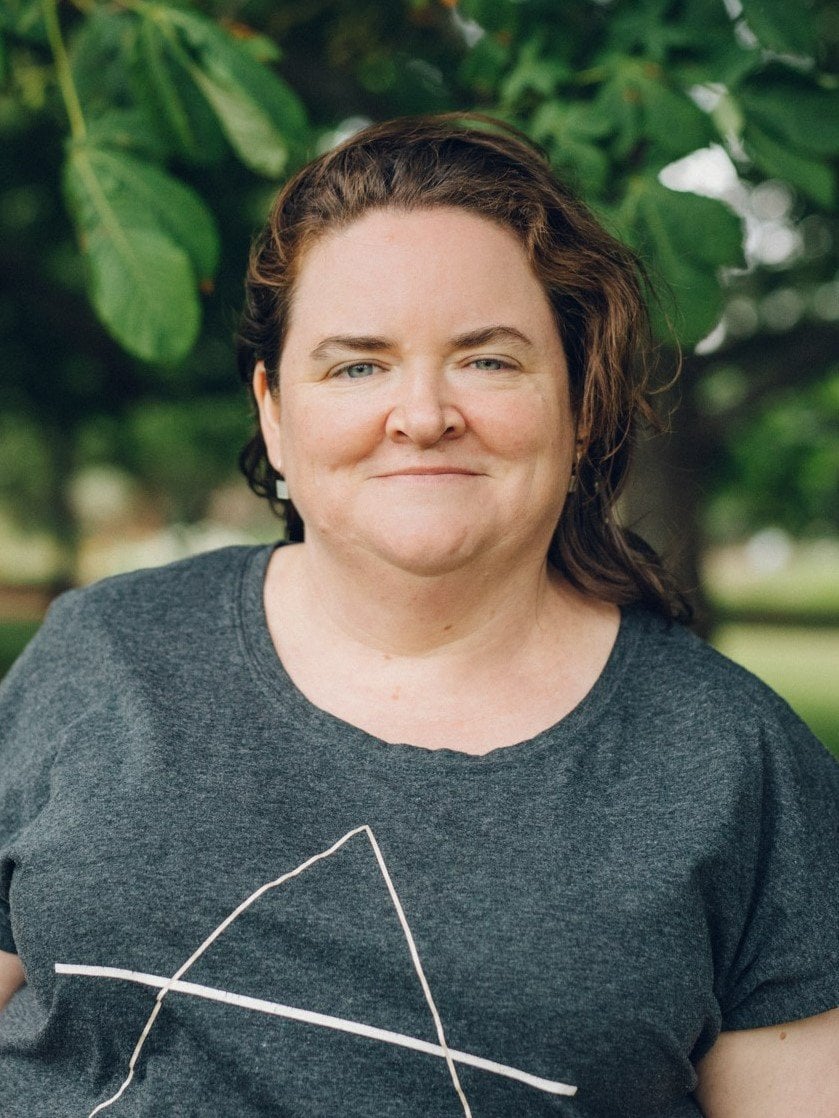
Anyone at any time can become a carer to a family member or friend. I became a carer when my eldest child was diagnosed with autism at age seven.
I am a proud mother to four young children (including triplets!) and a member of the LGBTIQA+ community. I’m also a lawyer at Your Story Disability Legal Support (Your Story), a free national legal service supporting people to safely share their stories and ideas for change with the Disability Royal Commission.
Walking on his tiptoes, fussiness with food, and an aversion to noises were the first signs my son was not neurotypical. For him I think the diagnosis came as a relief because he knew he was different. As a parent, I felt sad, surprised, and uncertain about what the future looked like.
We’ve come a long way since then but being a carer can still be challenging. It has its ups and downs. It’s an extra layer on top of being a parent.
Listen to Mamamia's parenting podcast, This Glorious Mess. Story continues below.
With an estimated 2.65 million Australians providing unpaid care and support to a family member or friend, carers make a huge contribution to our communities. They also have a unique perspective to offer the Disability Royal Commission, which is investigating the mistreatment of people with disability in all contexts and settings.
To date, my family’s experience has been largely positive. My son, now nine, was diagnosed relatively quickly and received NDIS funding fairly easily. He has a fantastic team behind him – a supportive family, a great school, and a great disability support provider. I know from both my professional life and my personal life that not everyone is as fortunate as we have been.






























































































